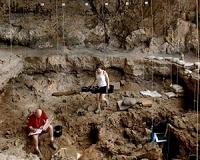| . |  |
. |
San Francisco (AFP) Sept 5, 2010 Sally Harrison is developmentally disabled, but on Facebook the 35-year-old woman is just like anyone else. Victor Tsaran scours the Web at lightning speeds and loves his touch-screen iPhone in seeming contradiction to the fact that he is blind. Internet gadgets and software are creating a virtual world of equality and opportunity for a large segment of the population once marginalized due to physical or mental impairments. "It is not about being able to do everything; it is about being able to do what you possibly can given your condition and the technology available," said Tsaran, a project manager at Yahoo! 'accessibility lab.' For Harrison, Facebook was part of transition that took her from highly-supervised confines of a group home to getting a job and moving into her own apartment. "She started to blossom after that," said Lisa Giraldi, executive director of Pacific Diversified Services (PDS), an organization devoted to 'true community inclusion for adults with developmental disabilities.' "For Sally, it has been fantastic." Facebook privacy controls were set tightly and Harrison's family signed on as "friends" and watch over her at the online social networking service. Harrison told AFP on Friday that she has 83 Facebook friends and tries to check her online profile daily. "It has helped me a lot," said Harrison, who grappled with low self esteem when she was first taken on as a client by PDS. "It is important to me because I get to connect with friends I haven't seen in a long time." PDS believes in people with disabilities living as independently as possible in communities, and Internet services such as Facebook, email, and online chat help clients stay connected. "They communicate with each other on Facebook, which is really neat," Giraldi said. "Then, they can make friends with other people's friends the way the rest of us do... it's a social equalizer in a way." Facebook pictures, comments and other posts capturing people with disabilities out enjoying their lives can help dispel stereotypes. "Social networks shield you from the initial first impression people get of a person with a disability," Tsaran said. "With social networking, you can create a shield around you so people don't judge you first by your disability. That is a big one for me." Teaching clients basic computer skills such as downloading digital pictures or buying songs for iPods at Apple's online store iTunes has become standard at PDS. "It really adds to their sense of acceptance in the community," Giraldi said. "It makes them feel a level of independence that really makes them feel good. Twitter will probably be the next thing." Tsaran's team at Yahoo! is devoted to getting engineers and designers to remove barriers that people with disabilities might face when visiting any of the California Internet firm's websites. Yahoo! has a second accessibility lab in India. Approximately 60 million people in the United States have disabilities and their combined annual income tops a trillion dollars, making them valuable customers. The number of people living with disabilities worldwide is 650 million, according to statistics released recently by the White House. Technology on display in the lab included Web pages with coding in pictures so descriptions of what might be seen on monitors was spoken aloud by "screen reader" programs used by the blind. Software let people with varying degrees of paralysis control computers with a tap of a finger, a puff of air, the turn of a head or the clench of a jaw. Apple has made a priority of building "universal access" into its devices, according to Brightman, who worked for 14 years at the California firm that makes iPods, iPads, iPhones and Macintosh computers. "The iPhone is the most popular smartphone among the blind population, because accessibility was part of Apple's view and was built in," special communities senior policy director Alan Brightman said. "To this day, I watch Victor use an iPhone and think it is amazing." Accessibility features are also designed into Windows software at the heart of the majority of the world's computers. Third-party software makers are also gearing technology for the disabled. For example, AssistiveWare on Thursday released a Proloquo2go update that lets people with trouble speaking use iPad tablet computers to act as their voices by touching symbols on the screens. People with disabilities are also benefiting from slick new gadget features such as software that converts spoken words into written text in smartphones running on Google-backed Android software. "We are really about independence and choices and participation," Brightman said of efforts at the lab and elsewhere in the technology community. "You ought to be able to do anything anyone else can do; you just have to do it your way."
Share This Article With Planet Earth
Related Links All About Human Beings and How We Got To Be Here
 First Clear Evidence Of Feasting In Early Humans
First Clear Evidence Of Feasting In Early HumansStorrs CT (SPX) Sep 02, 2010 Community feasting is one of the most universal and important social behaviors found among humans. Now, scientists have found the earliest clear evidence of organized feasting, from a burial site dated about 12,000 years ago. These remains represent the first archaeological verification that human feasting began before the advent of agriculture. "Scientists have speculated that feasting be ... read more |
|
| The content herein, unless otherwise known to be public domain, are Copyright 1995-2010 - SpaceDaily. AFP and UPI Wire Stories are copyright Agence France-Presse and United Press International. ESA Portal Reports are copyright European Space Agency. All NASA sourced material is public domain. Additional copyrights may apply in whole or part to other bona fide parties. Advertising does not imply endorsement,agreement or approval of any opinions, statements or information provided by SpaceDaily on any Web page published or hosted by SpaceDaily. Privacy Statement |